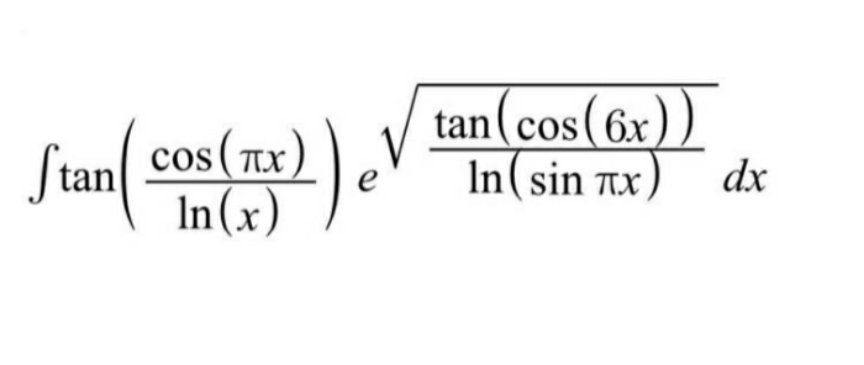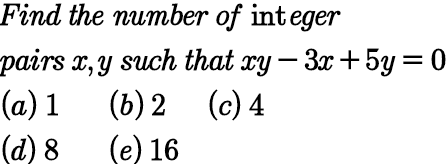
Question and Answers Forum
AllQuestion and Answers: Page 1144












Pg 1139 Pg 1140 Pg 1141 Pg 1142 Pg 1143 Pg 1144 Pg 1145 Pg 1146 Pg 1147 Pg 1148
|
Question and Answers Forum |
AllQuestion and Answers: Page 1144 |
| Let m and n be two positive integers satisfy (m/n) = (1/(10×12))+(1/(12×14))+(1/(14×16))+...+(1/(2012×2014)) find the smallest possible value of m+n |
| ∫(dx/(x!))=? |

|

|

|

|
| If: (1+m)^3 −3m^3 =2 0≤m≤1 Find: (1+m)^2 −3m^2 |
| proof that 1^2 +2^2 +3^2 +....+n^2 =((n(2n+1)(n+1))/6) |
| ∫(sinx^(cosx^(sinx) ) −cosx^(sinx^(cosx) ) )dx |

|
| ∫_0 ^1 (1/(1+[(1/x)]))dx=? |

|
| ((√((8)^(1/(4 )) −(√((√2)+1))))/((√((8)^(1/(4 )) +(√((√2)−1))))−(√((8)^(1/(4 )) −(√((√2)−1)))))) ? |
| If x and y real number satisfy (x+5)^2 +(y−12)^2 =196 , then the minimum value of x^2 +y^2 is |
| calculateI = ∫_0 ^(π/2) ln(cosx +sinx)dx and J =∫_0 ^(π/2) ln(cosx−sinx)dx |
| Given { ((u_0 =a)),((u_(n+1) =a+(1/2)(1−(1/b^n ))u_n )) :} a>0 b>1 a\ Calculate u_1 , u_2 , and u_3 . b\ Show that the sequence (u_n )_(n∈N) is increasing. c\ Deduce that (u_n )_(n∈N) converges and determine its limit. |
| ∫(1/dx)=? |
| show that ∫_1 ^e ((x−xln(x)+1)/(x(x+1)^2 +x ln^2 (x)))dx=arctan((1/(e+1))) |
| Suppose y = 8 ; (dy/dx) = 4 & (d^2 y/dx^2 ) ∣_(x=1) = −2 . Find the value of (1) ((d(xy))/dx) ∣_(x=1) (1)((d^2 (xy))/dx^2 ) ∣_(x=1) |

|

|

|

|

|
| ∮ x^2 dx = ??? |

|
Pg 1139 Pg 1140 Pg 1141 Pg 1142 Pg 1143 Pg 1144 Pg 1145 Pg 1146 Pg 1147 Pg 1148 |